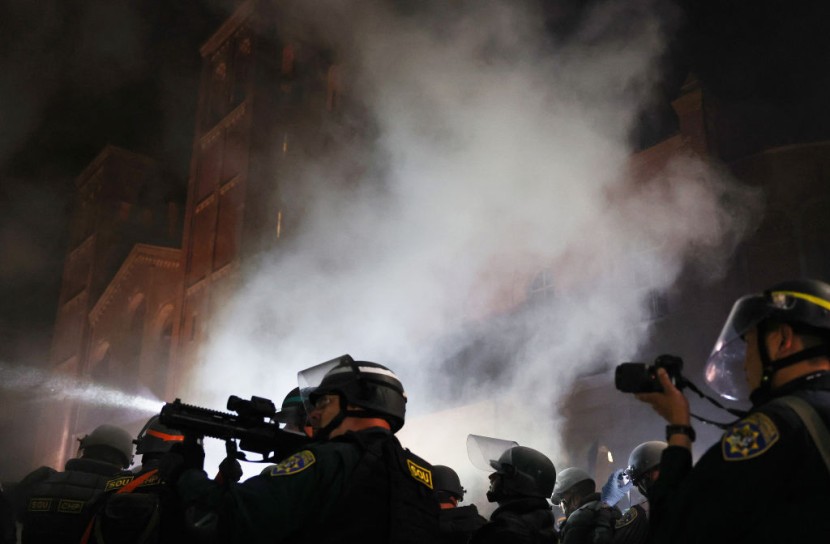
In what's become one of the biggest cases in the history of the UCLA Police Department, investigators are now identifying the dozens of people who attacked a pro-Palestinian encampment on school grounds last week by scanning hundreds of images from live video feeds.
The technology UCLA detectives are using is the same technology that police use to find suspects in retail burglaries and was particularly helpful in assisting the FBI when assailants stormed the U.S. Capitol on January 6. The method led federal prosecutors to charge more than 1,300 people after January 6.
"Technology has made the entire community into the eyes of law enforcement," said retired Los Angeles police Capt. Paul Vernon.
"Photo recognition has gotten a lot easier," he added.
Retrieving cellphone data from the immediate area helps place an individual at the scene during the time of the incident.
The attackers are likely to have used vehicles, allowing police to examine license plate readers for movements made near campus early Wednesday.
However, as advanced as the technology may seem, it does face a number of challenges.
Some of the assailants wore masks to help conceal their identities, meaning detectives will have to thoroughly scan split moments from footage either before or after the attacks to catch the suspects without disguise, according to The Los Angeles Times.
While it took three hours for authorities to break up the scene, those who were involved fled, and no arrests were made.
Anger and resentment have spread far and wide among protestors in the camp as well as supporters who watched the videos, due to the length of time police took to stop the attack.
Students who were injured and hospitalized with their wounds have turned to organizations like the Council on American Islamic Relations for Southern California.
The UCLA Police Department has said it is contacting other agencies as well as private entities in the hope of accessing the technology needed for the investigation.
Many of the arrests made following the Jan. 6 attack were also based on information given by relatives, colleagues, friends, and ex-significant others after the FBI released photographs of the suspects.
Snapshots from the ambush are popping up on social media platforms, such as Instagram.
In one post, a man can allegedly be seen using a plank to hit a pro-Palestinian protester and then punching and kicking others. His bearded face could easily be seen, as it was not hidden behind a mask.
UCLA has yet to announce a public appeal seeking information on specific suspects.
Pro-Palestinian encampments have sprung up at college campuses around the nation, calling for schools to divest from Israeli interests amid the ongoing war in Gaza.
© 2026 HNGN, All rights reserved. Do not reproduce without permission.









